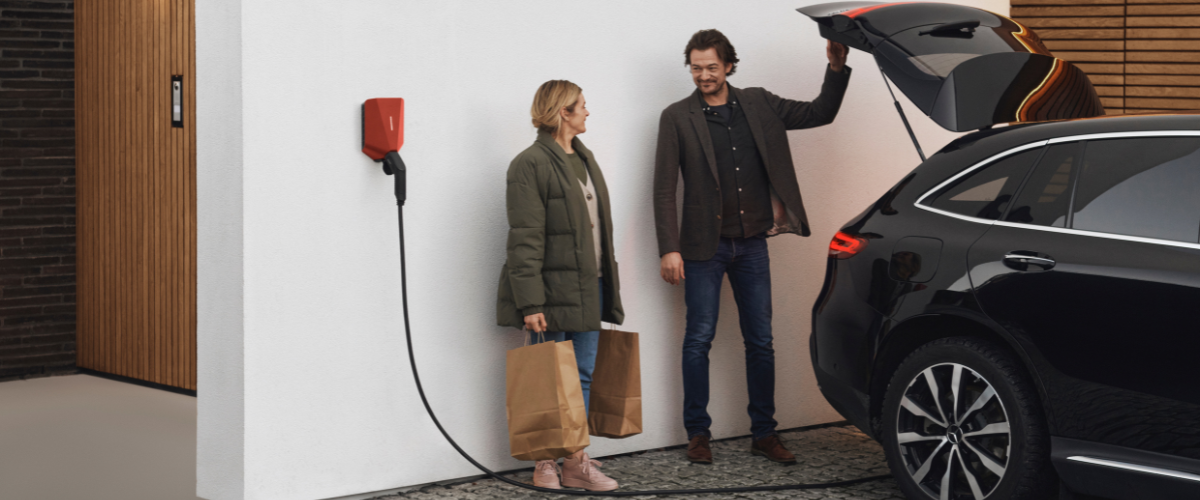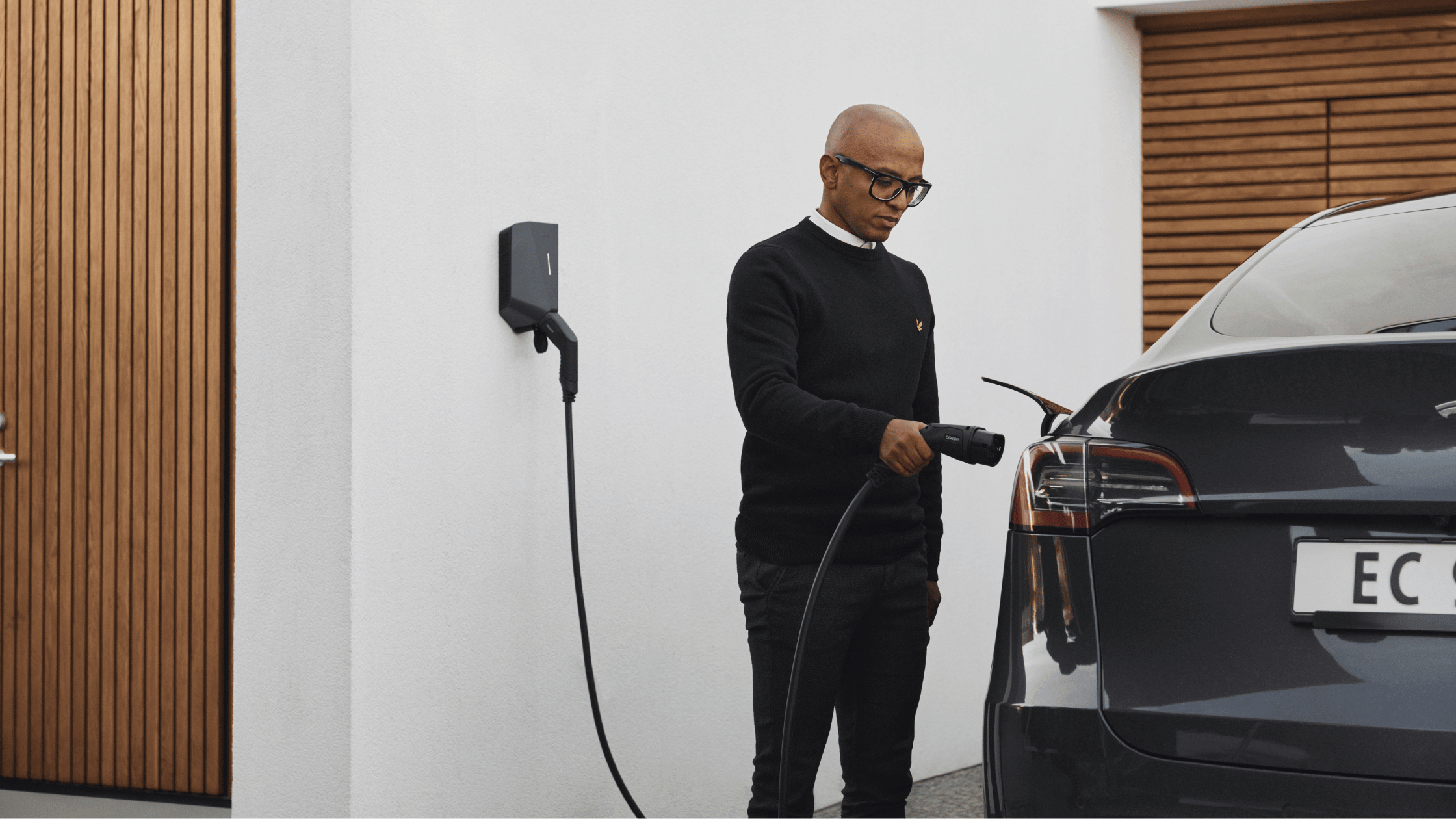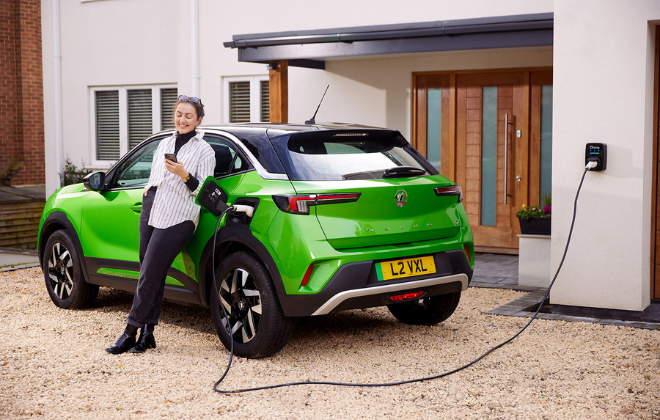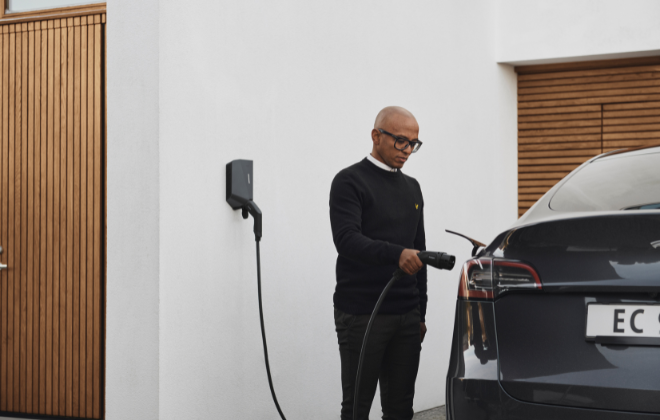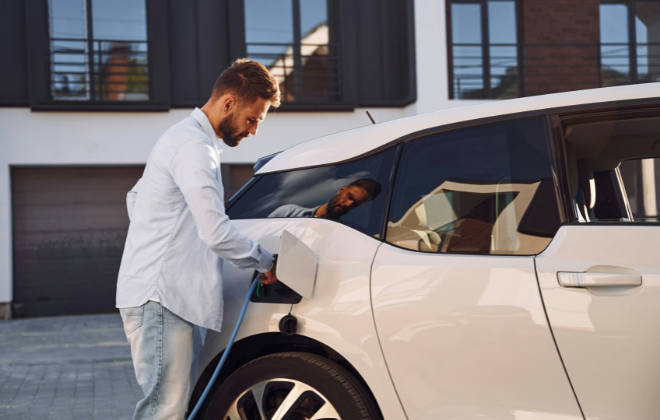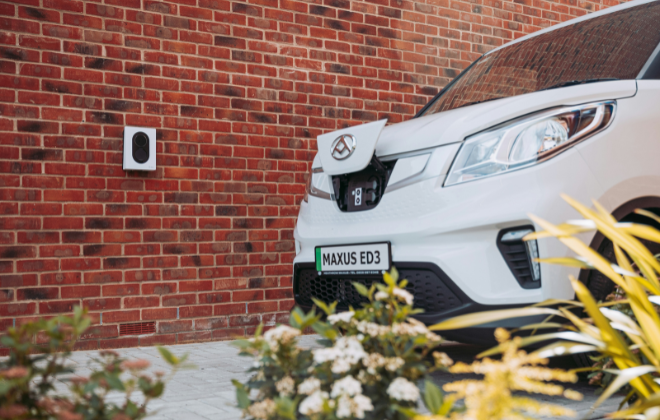
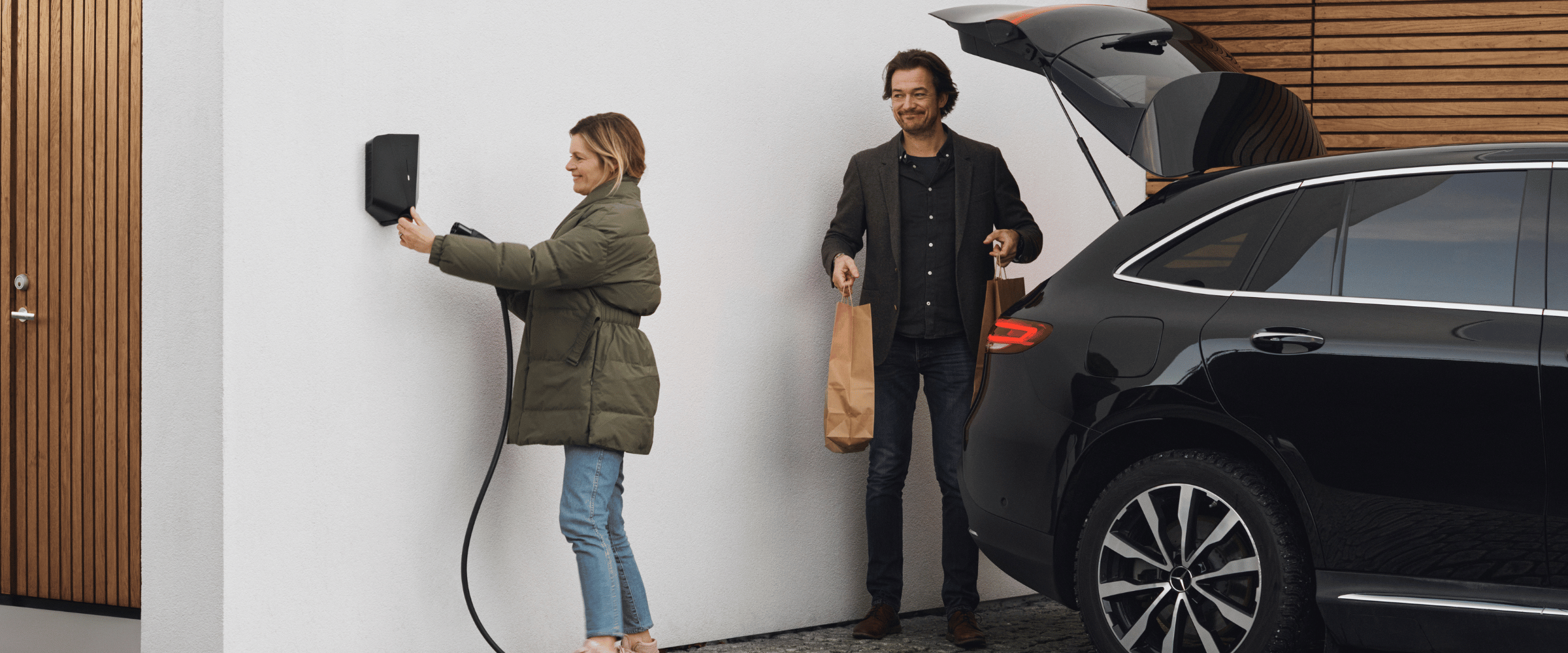
How much does it cost to install a home electric car charger?
How much does it cost to install an EV charger at home? (2024 edition)
EV home chargers are essential for cheaper, greener and more convenient EV charging sessions.
But how much do they cost? Do all EV home chargers cost the same amount?
Sadly, the cost of a home EV charger varies. In summary, though, the cost of installing a home EV charger in the UK depends on a number of key factors. The power outlet of the home electric car charger you choose, grant eligibility, and the complexity of the installation are all prime examples of factors that influence the price of fitting a home EV charger. But if you are interested in a ballpark price, the cost of installing an EV home charger varies from £750 to £2,000 in the UK.
| Power outlet of home EV charger | Average cost of a home EV charger and standard installation (without grant but inclusive of VAT) |
| 3.6kW home EV charger | £750-£900 |
| 7kW home EV charger | £999-£1,300 |
| 11kW home EV charger | £1,400-£1,600 |
| 22kW home EV charger | £1,800-£2,200 |
When EV installation companies advertise prices, it’s important to be aware that the lower prices tend to be post-grant and not the overall price. Grants are only available for those who rent or live in flats or apartments and not homeowners, as the previous £350 Electric Vehicle Homecharge Scheme grant ended in 2022.
The above prices are all estimates as the total cost of a home EV charger and its installation depends on several factors. No home EV charger installation is the same; therefore, prices for the supply of a home EV charger and its installation vary from customer to customer.
People have different wants, needs and building requirements, so it’s always best practice to obtain a quote for your specific circumstances.
But what factors impact the cost of a home EV charger installation?
What factors influence the price of a home electric car charger installation?
The home EV charger
A wide variety of home electric vehicle chargers are available in 2024, and the list keeps growing as the industry develops. So not only do you have to choose which charger to go for, but you also have to consider each EV charger’s build, aesthetic, smart features, and, most importantly, price points.
One important factor to consider in terms of the EV home charger itself is whether you’d like a tethered or untethered EV charger – tethered (where the cable is permanently attached to the unit) or untethered (where you can plug and unplug the cable from the charger).
Untethered EV chargers are usually slightly cheaper than tethered ones as you use the cable you got with the car rather than purchase a new one. That said, the difference is not much – roughly £50-£100. The longer your tethered EV charging cable, the more expensive your home electric car charger will be.
Additionally, EV chargers installed at home all come with various smart charging features. You may be uninterested in smart features to start, but if you choose the right home electric car charger to have installed, you can save substantially on home charging costs – and more.
Take the Ohme Home Pro, for example; with advanced tariff integration, your Ohme home EV charger can connect to all energy tariffs and will allow you to charge at the cheapest rates to you. In fact, UK drivers can save more £400 a year with an Ohme compared to standard home EV chargers.
Other ways to save and charge are available, too. Top up with cheaper, free solar-generated electricity with a solar-compatible home EV charger, such as the VCHRGD Seven.
Safer EV charging sessions are guaranteed with the Easee One’s cable lock feature, too – allowing you to lock your cable from unwanted use.
With this in mind, home EV chargers packed with smart features will cost more, but you will make the difference back with the savings from such advanced smart features.

On-street or off-street parking
Most importantly, the cost of your home EV charger will depend on whether you have off-street parking.
Typically, you can’t have a standard EV charger installed at home if you have on-street parking, such as if you live in a terraced house. However, with the innovative ChargeArm, you can. But, the cost of a ChargeArm and a home charger is significantly more expensive than a standard EV charger – roughly costing around £2,000-£3,000 in total.
The EV charging rate (power outlet)
While the EV charging rate could fall under the home EV charger, what kilowatt charger you choose can come with additional costs as touched upon earlier.
While the prices of different home EV charger power outlet varies, the most common home EV charger is rated at 7kW – and in our professional opinion, you don’t need more than 7kW to charge your car. That said, 22kW and 11kW home EV chargers are available if you desperately want a higher charging rate. Alternatively, 3.6kW EV chargers are available too, if you wish for a lower power outlet.
A 7kW EV charger is far cheaper than 22kW and 11kW electric car chargers because a 7kW charger requires a single-phase electricity supply, compared to 22kW and 11kW EV chargers that need three-phase supply.
Most homes in the UK have single-phase electricity supplies, and upgrading your supply from your local DNO is expensive and time-consuming. On top of that expense, you’ll then have to add the cost of the EV charger, meaning the cost will be significantly more.
Installation costs – how much does it cost to install an EV charger at home?
To make matters more complicated, your home EV charger installation costs also depend on a number of factors – charger location, the cable run, if groundworks are required and much more.
If further your home EV charger is from your meter box, the more expensive the cable route will be. For example, a detached garage home EV charger installation is more costly than an EV charger on a driveway.
Most experienced companies offer a standard installation package, meaning if your installation falls within the set boundaries of the laid-out package, you’ll receive a quote for a fixed price – think of it like a package holiday, where everything you’ll need is included. The only additional cost would be a Surge Protection Device. However, you can opt out of this fee if you wish.
80% of home EV charger installations fall within our standard installation package at We Power Your Car, so it’s likely you won’t be subject to additional costs. That being said, non-standard installations do occur, as some properties require more work than others, which will subsequently affect the cost.

What counts as non-standard work in an EV installation at home?
Some examples of non-standard work for a home EV charger installation include:
- If your cable run is longer than 10 metres
- Installation of a three-phase electric car charger
- Additional groundworks
- If you want your charger mounted on a post instead of on a wall
Truthfully, non-standard installations are not a problem for experienced EV charger installers. But it’s important that you’re aware that the cost of a home electric car charger installation will be higher than the average due to the additional equipment and labour costs needed to complete the job.
Don’t worry about what installation package you’d fall under – your chosen EV charger company should undertake an online site survey to decide what package you’d fall under so you don’t have to worry. For the online site survey, images and videos of the cable run between your fuse box to where you want your EV charger located and images of your water bonding and gas bonding are needed. Of course, if the job seems more complex or you are struggling with the online site survey, in-person site surveys can be undertaken.

Home EV charger grants
Unfortunately, the Electric Vehicle Homecharge Scheme that provided £350 towards a home charging point for homeowners ended in March 2021. And while, unfortunately, no government aid is available for single-unit homeowners, the OZEV EV chargepoint grant for flat owner-occupiers and people living in rented properties is available in 2024. With this grant, residents who rent or own flats/apartments are entitled to £350 off the supply and installation of a home EV charger.
Other government grants for electric car chargers are available, which could be used to lower the cost of your EV charger installation. However, not all are applicable to residents wanting to invest in a home EV charger.
- Businesses, charities, and public sector organisations can apply for up to £14,000 of the cost and installation of EV charging points with the Workplace Charging Scheme – this allows those who have a registered business at their home address to knock £350 off their home EV charger installation.
- Residential landlords are available for up to 200 grants of £350 each financial year, and commercial landlords can claim 100 grants per financial year with the EV chargepoint grant for landlords.
- Up to £15,000 is available per grant for staff and fleets as part of small-to-medium-sized businesses with the EV infrastructure grant for staff and fleets.
- Energy Saving Trust Scotland offers up to £300 in grant funding for Scottish residents.
- £30,000 per application is available for residential car parks with the EV infrastructure grant for residential car parks.
Want to take advantage of faster, cheaper and smarter home EV charging? Get in touch for a free, no-obligation home EV charger quote.
If you are looking to get an EV charger installed at your home, click below to get your free quote, or contact us for more information or any queries you may have.
For more information and our latest updates, follow us on Facebook, Instagram, Twitter, LinkedIn and YouTube.
Related articles_
Stay up to date on the latest from We Power Your Car_
I consent to receive newsletters from We Power Your Car. Please see our Privacy Policy
